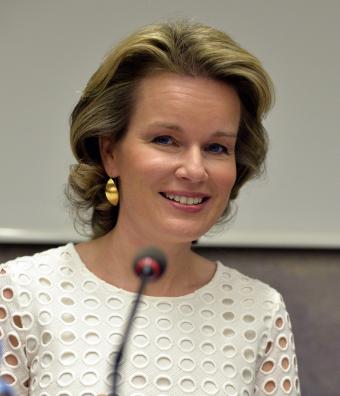Address by Her Majesty the Queen on a visit to the World Health Organization (WHO)

(Address pronounced in French)
Director General,
Your Excellencies,
Ladies and Gentlemen,
When I accepted to become an Advocate for the United Nations’ Sustainable Development Goals, I decided to make mental health one of my priorities. I am very pleased, therefore, to be able to contribute to the discussions on this crucial subject.
As you know, the promotion of health and wellbeing for everyone is one of the SDGs. As part of Goal 3 (health) the international community has also set itself the goal of promoting mental health and wellbeing. Unless people have good mental health, neither they nor their society can achieve their full potential. Investing in human capital is essential for development.
Problems linked to mental health affect people of all ages and all social backgrounds. Some may suffer from illness of a genetic or physical nature, others from stress or anxiety. We know that young people and the elderly are the most vulnerable. But people everywhere – in both developed and developing countries – are affected.
Events experienced in crisis situations, such as conflict or natural disasters, can also provoke deep psychological trauma, as can extreme poverty or everyday violence, be it physical or mental. Those affected, such as child-soldiers or the victims of sexual violence, need more support to rebuild their lives and find their places in society.
Stigmatisation of people with mental disorders and the taboo that surrounds them, all over the world, constitute considerable obstacles to treatment. More efforts must be made to break the silence if we want to implement one of the fundamental principles of Agenda 2030, to leave no one behind.
But even those who seek advice and assistance may find themselves facing new difficulties.
All too often there is a lack of quality medical and social care, and mental health is not always considered to be a priority. The resources available to the medical health sector remain too limited. In this perspective, the inclusion of mental pathologies as part of universal health coverage should be generalized. Furthermore, the number of qualified professionals remains inadequate. It is therefore essential to encourage enrolment in this type of training.
Nonetheless, new ways of dealing with mental health are being developed, offering alternatives to medicalisation and institutionalisation. They involve patients themselves, their families and communities, as well as volunteers and of course professionals, in an approach that is more respectful of human rights and dignity.
I have had the opportunity, for example, to see the positive effects of projects based on music, in which children and young people with psycho-social difficulties participate.
During my recent visit to Mozambique, I visited the health services in the province of Gaza and, in particular, a WHO project at Chokwe District Hospital. Apart from the devotion of the medical staff, who work in difficult conditions, I was touched by the solidarity between families and friends in supporting adults and children in difficulty.
Even though the causes of mental health problems are multiple, even though the relationships between cause and effect are not always unambiguous, we must invest more in prevention. We must deal with the social and environmental causes of psychosocial problems, which may stem from poverty and the anxiety it generates, or dysfunctional family relationships, weakening social ties or difficult working conditions.
If we want to accelerate the implementation of our targets for mental health, research results and conclusive experiments must be shared as widely as possible. Making them available in languages accessible to diverse communities of researchers, medical personnel, social workers and, of course, the people directly concerned would make it possible to considerably increase the global dialogue on mental health.
We urgently need to give new impetus to the implementation of the United Nations’ Goal for mental health, SDG 3, and indeed to all the SDGs. Your discussions today and the WHO’s new initiative on mental health are important signals in this respect. No one can deny that the challenges are still enormous, both in terms of raising awareness of the issue and meeting mental health needs, and in terms of sustainably changing habits.
Only the spoken word counts.
